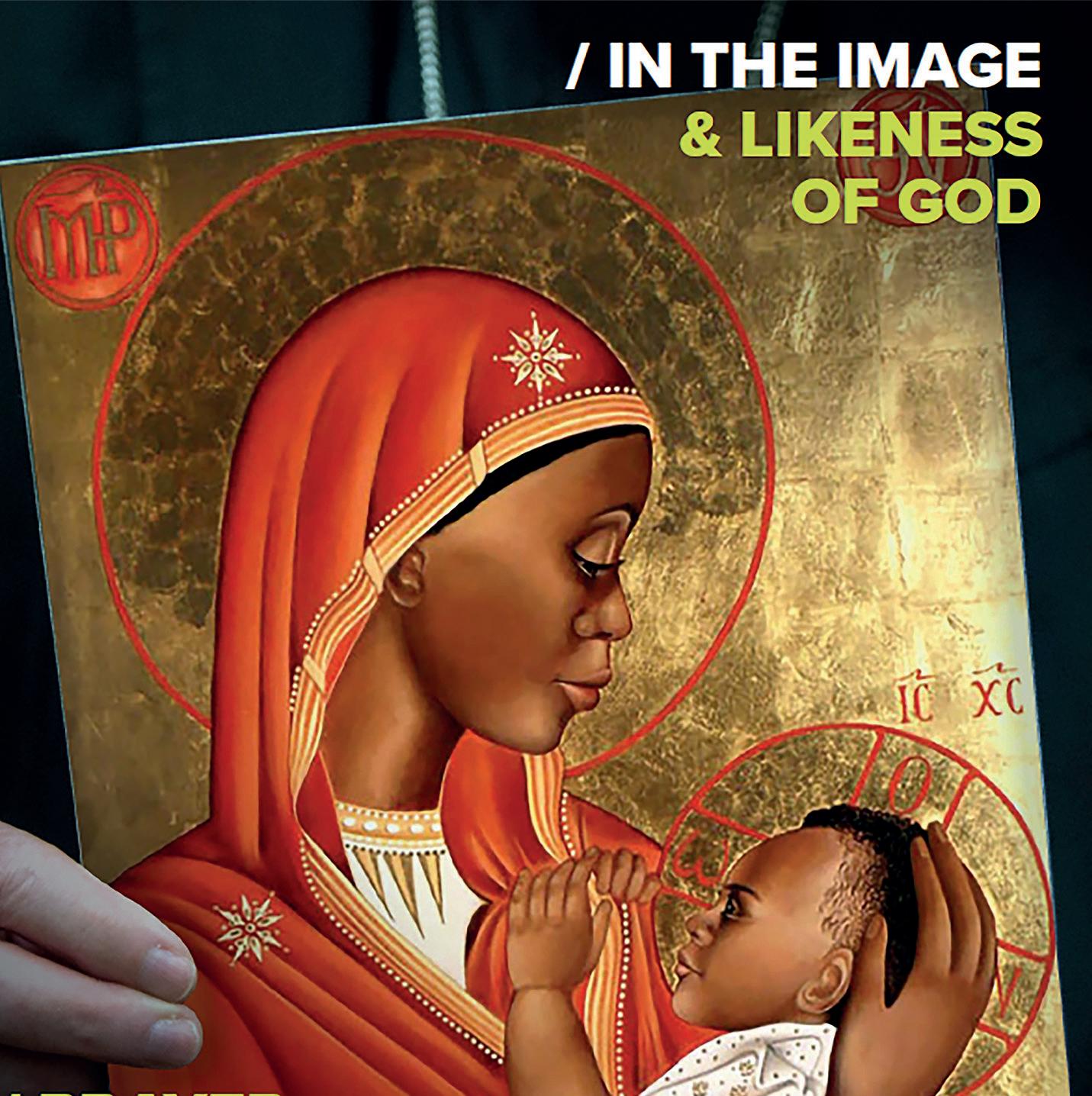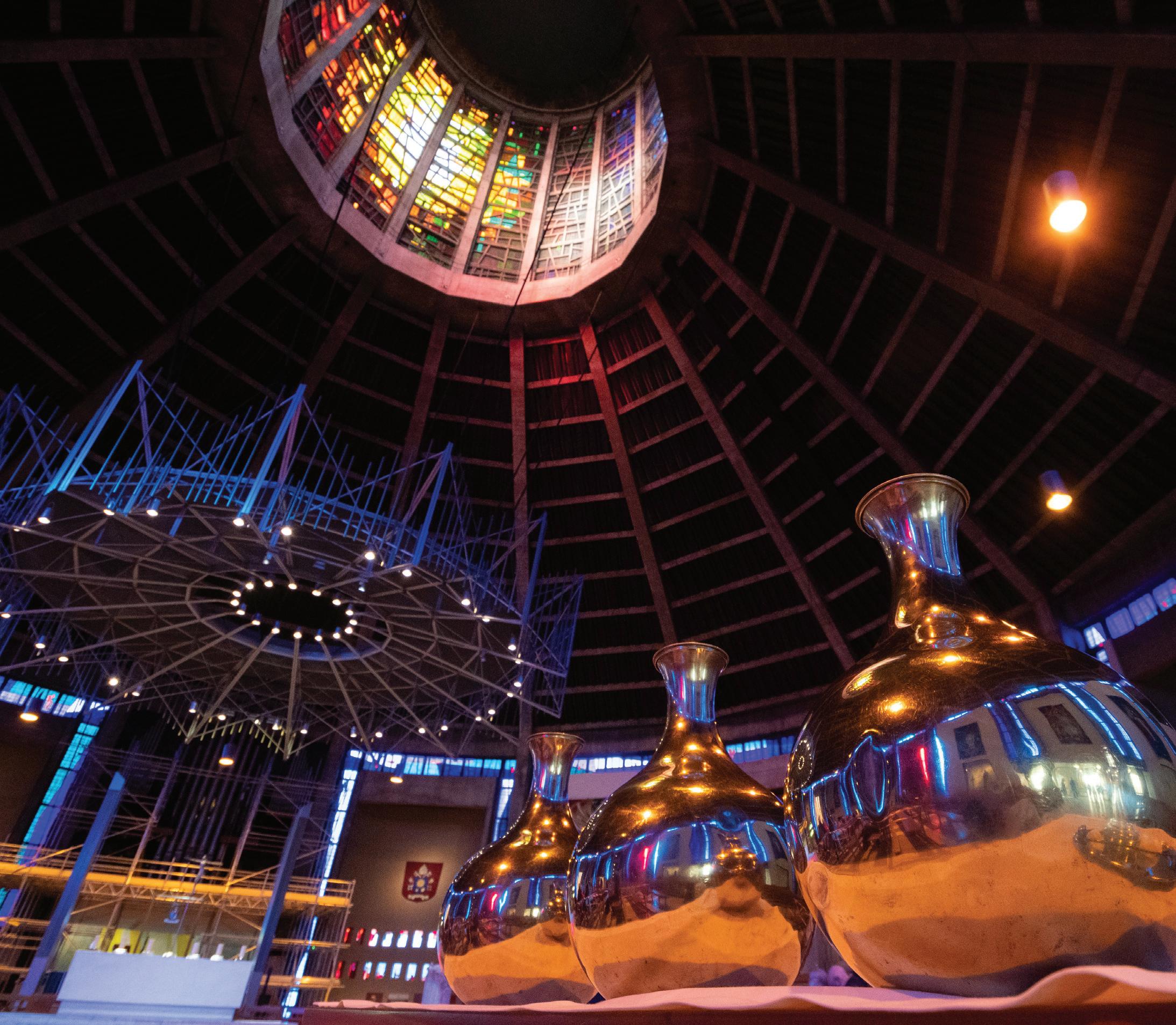
2 minute read
Dialogue and Unity Racial Justice – a challenge to us all
Ultan Russell, Archdiocesan Ecumenical Officer
Leaders gave our ecumenical work here on Merseyside international recognition.
Advertisement
Churches are encouraged to focus on the 3 Rs of ‘remembering’, ‘reflecting’ and ‘responding’: remembering the importance of racial justice; reflecting on human diversity and thanking God for it and responding by working to end injustice, racism and ignorance through prayer and action.
The material gives ideas for prayers, hymns, discussion topics, statements from Church Leaders and is an excellent resource on racial justice not just for the Sunday itself but all the year round and can be used by schools, meetings of organisations like the Union of Catholic Mothers, a discussion by a group in a parish or items for parish newsletters.
Racial Justice Sunday began in 1995. It will be commemorated this year on Sunday 5 February. The actual catalyst for this event was the tragic killing of Black teenager, Stephen Lawrence, in Eltham, South London on 22 April 1995. Stephen was returning home with a friend when he was attacked and killed by a group of white youths.
The subsequent police inquiry was seriously flawed – at one point, the police even spied on the Lawrence family. The bungled nature of the investigation led the then Labour Home Secretary, Jack Straw, to announce the Stephen Lawrence Inquiry.
The subsequent Macpherson Report concluded that the investigation into Stephen’s killing had been ‘marred by a combination of professional incompetence, institutional racism and a failure of leadership’. Specific officers in the Metropolitan Police were named and the entire force was criticised. The Lawrence family were churchgoers and attended a Methodist Church. The fruits of the Macpherson report challenged many organisations including Churches to review the way they operated and to develop more robust policies on equality and inclusion. Stephen’s mother is now Baroness Lawrence.
This resonates with us here in the archdiocese where Anthony Walker was brutally murdered in Huyton and his mother Dee and his family have done so much to educate professionals and others on issues of racism. Dee Walker was honoured by the King in the 2023 Honours List with an MBE.
Then of course to our shame we had the Toxteth riots in 1981 along those in other British Cities including Brixton in South London. The work of reconciliation so effectively spearheaded by our Church
Yogi Sutton, the National Chair of the Catholic Association for Racial Justice commented: ‘In April 1999, the Catholic Bishops Conference welcomed the Macpherson Report and urged “all Catholic organisations and institutions to look again at how they could better serve minority ethnic communities in our midst”. The bishops published Guidelines for the Review ...And what about the church? Thirty years later, we look at the church and have to ask, “Where are we now?” Many of our parishes include people from diverse backgrounds, but too often they do not have a voice or a seat at the table where decisions are made. Is it time for another review?’
Great efforts have been made in the archdiocese and recognised in the Pastoral Plan, in the curriculum in our schools and in the work of our Justice and Peace Commission and our Department for Pastoral Development including our concern for refugees and asylum seekers typified by our concern for the Ukraine, and the relationship between climate change and refugees.
To mark the day the Catholic Bishops’ Conference of England and Wales have produced a series of posters, which highlight the rich diversity of our Catholic community and encourage reflection upon how all peoples are made in the image of God.
Material for Racial Justice Sunday can be downloaded from https://ctbi.org.uk/racialjustice-sunday-2023-stephen-lawrence









